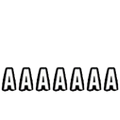Sorry no books to recommend, but I did read this in its entirety, its extremely based and should be almost mandatory, the 2023 study Capitalism and extreme poverty: A global analysis of real wages, human height, and mortality since the long 16th century by Dylan Sullivan and Jason Hickel.
I think it is extremely good, maybe not definitive but getting this close to a scientific measure of the effects of capitalism beginning from the colonial era and debunking some extremely important myths like capitalism was beneficial or that inequality was already common. On the contrary, they get realy close IMO to proving at the very best Capitalism did not improve anything and at worst it only caused massive inequality, poverty and death.
As I said it is so good I would even say its mandatory reading and even though its not a book it should be easily adapted into one.

